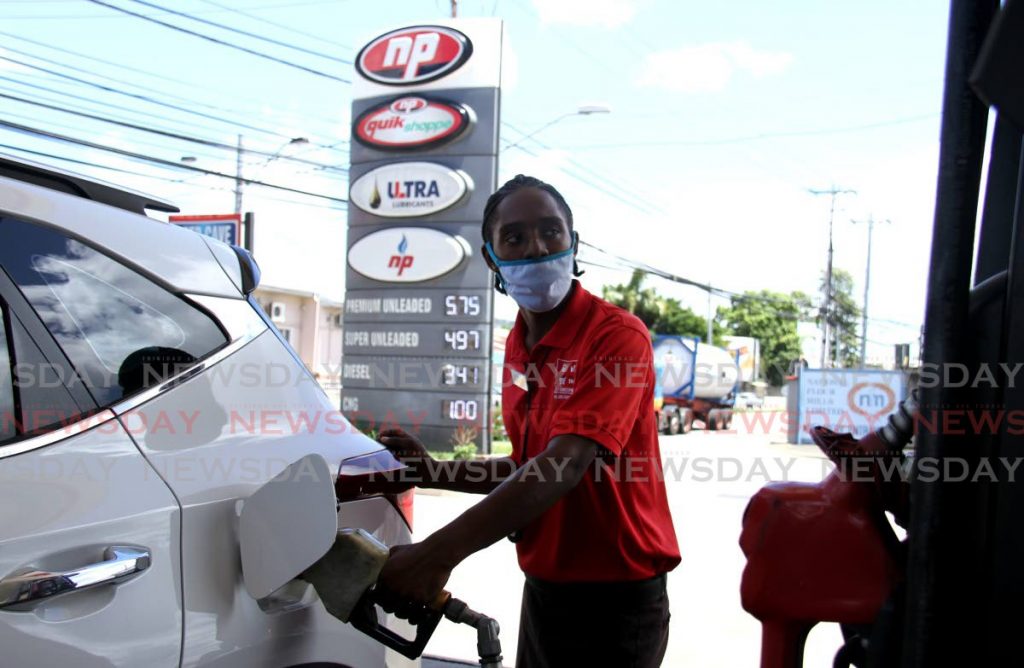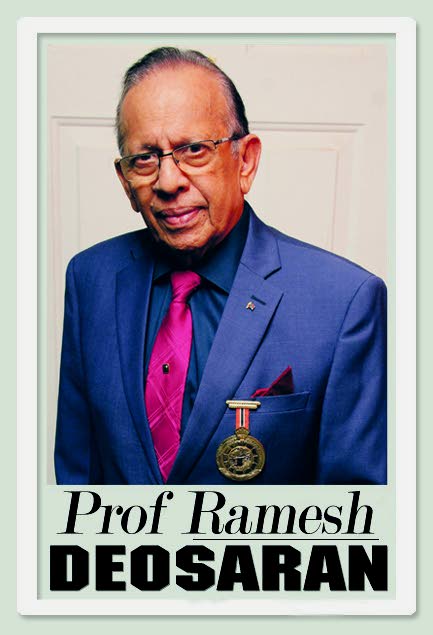Pressure on poor people

Professor Ramesh Deosaran
What went wrong with Energy Minister Franklin Khan two weeks ago? How could he just jump up one morning and say he took a “no more Super gas” proposal for Cabinet approval? What evidence, what justification did he or his “technocrats and industry stakeholders” have for this?
Look, working-class people, taxi drivers, public servants, even pensioners use Super. Transportation costs for everyone from students to salaried workers and pensioners will hit the sky in the coming “liberalised free market” set-up.
Worse yet, the very next day after this bizarre “no Super” media announcement, Mr Khan said Cabinet is yet to decide. Yet to decide? Cabinet will wait and see how “price liberation” works. Poor taxi drivers and fishermen already got licked up by the removal of regular gas. Why?
Was this Super-gas removal plan used as a distraction from Minister of Finance Colm Imbert’s doomsday economic announcements? Or is Khan’s announcement and quick withdrawal a kind of smartman psychology, a way of easing the pressure to come?
From a consumer viewpoint, not only the removal of Super gas is an issue, but the very way it is being done. This idea and the way it came out is scary. If you think things bad now, wait until the fuel market gets "liberalised” with high-priced Premium as the only gas option. Look, liberalisation means more freedom for people, not more suffering.
Khan’s ministry quite casually said: ”In this liberalised environment, members of the public can expect to see monthly fluctuations in the pump prices of Premium, Super and diesel gasoline in alignment with market prices and also depending on the retail margins set by service station operators.”
Retail margins set by operators?
Tireless Finance Minister Colm Imbert proudly noted how he had already removed subsidies three times and nobody “rioted yet.”
Now, the PNM once established itself as a “looking after the poor” party. What happened? Who will own these gas stations? Existing owners in part? Will advertisements for procurement bids be soon issued? Will the sales be at a loss since government is already refurbishing and upgrading these stations? Is it the potential buyers as “industry stakeholders” who are asking that Super be phased out as a condition for purchase?
I know the government has problems, but I don’t think they are considering the implications of their policies as thoroughly as they should. I know there are other big issues such as our low oil production while the price stands at round US$60 per barrel (budget US$45) or the bubbling Petrotrin problem, or diminished tax revenue, etc.

But when such things as transportation costs significantly increase, worker output and productivity decrease. The candle begins to cost more than the funeral.
Some puzzling things are beginning to appear about government policy-making. For example, the Finance Minister says there are too many cars causing traffic jams on our roads. Now, of course, all these car owners already pay taxes of one kind or another.
But Imbert’s grand solution is to make it more expensive to buy cars. A negative solution. More pressure on the travelling public. with traffic jams and roads remaining the same.
The population is already very hard-pressed. The meandering and underground allegations over covid19 vaccination do not help. Government must therefore be careful not to add to the aggravation.
Another example is the undue hardships put upon poor working-class and “ole people” too, by having them lined up for hours in rain and sun for what? To exchange their old dollars for new ones! Why?
Why make poor people suffer so? It was said to help prevent money-laundering and corruption. It’s like Peter paying for Paul. Aren’t there already laws to do this?
And yet in the Financial Intelligence Unit reports, thousands of “suspicious transactions” still appear without arrests or prosecution, leaving people to wonder if the definition of “suspicious transactions” is really effective.
I raise these hardships imposed on the poor because I too faced harsh poverty, struggling over barriers with no “contacts” to help. And after becoming a senator and professor, I advocate for poverty reduction while also researching the suffering and destitution. In fact, when you check it, middle-class, salaried-class people now catching some hell too. Ask them.

Comments
"Pressure on poor people"